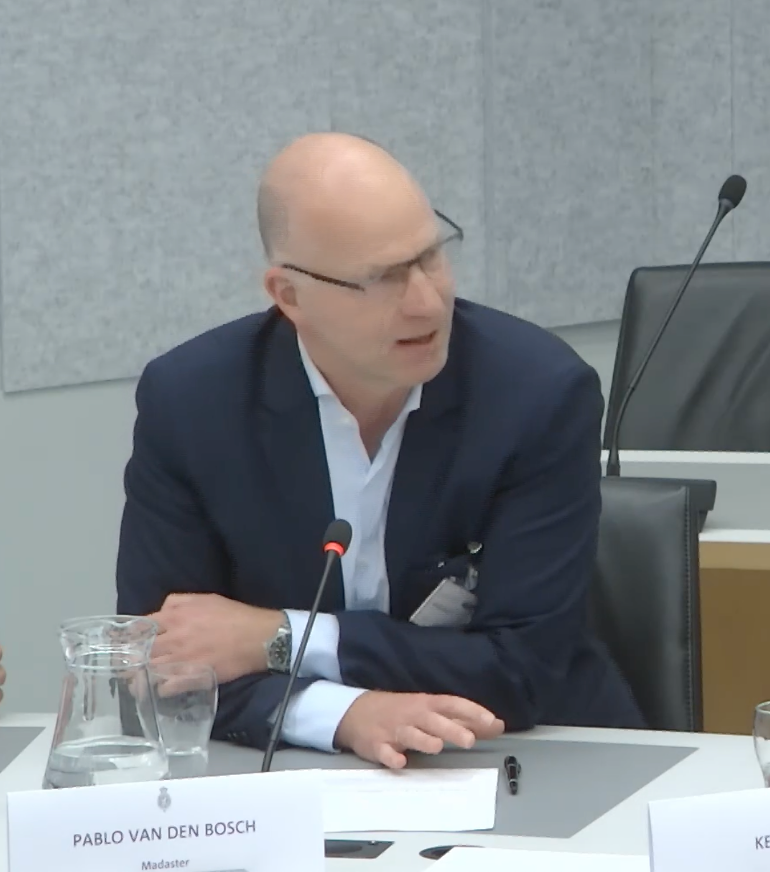THE IMPACT OF MATERIAL PASSPORTS WITHIN THE PROPERTY CHAIN
Author: Germien Cox, Madaster
HOUSES EQUIPPED WITH MATERIAL PASSPORTS… WHAT DOES IT MEAN?
Recent research by BPD (Building Fund Property Development) shows that 90% of consumers are interested in sustainable housing. Frans Holleman, director of BPD’s North-East & Central regions, is well aware that BPD is able to play an important role, here: ‘As a property developer, we are involved in the development of new residential areas. This gives us a leading role in the chain. Using and reusing raw materials and limiting waste flows in new housing construction and area development are integrated in our sustainability ambition. But we cannot achieve this without the help of others, which is why, together with our partners in the chain, we started a learning process on circular new housing development. The material passports are an important step towards determining the circular value of new homes. We will start by providing 1,000 new homes in the north-eastern and central regions of the Netherlands with a material passport in Madaster. This will give the new homeowners insight into the individual components and the degree of circularity of their new property.’
BPD, thus, is contributing to today’s need for sustainable housing. But what does it mean for builders and suppliers? We asked Antoinette Wilmot, commercial director at Reinbouw, and Gerhard Hospers, deputy director of Greenworks at Raab-Karcher.
” Reusing raw materials and reducing waste flows require a joint effort by all those in the chain “
Reinbouw is one of the construction companies participating in BPD’s learning process to equip new homes with a material passport. Reinbouw’s main activities include the development, construction, renovation, maintenance and transformation of areas to facilitate residential housing, provide work and care environments, and areas for people to enjoy. What happens, in the long term, to such developments and the materials they contain is now much clearer. Antoinette Wilmot is very happy about that: ‘The ultimate goal is that, together, we can ensure that future new housing construction will not be delayed by a lack of resources and/or raw materials, and that we do not deplete the earth’s resources in the process. And then there are the added advantages that material passports represent, such as the registered inventory of building materials and products. Traceability of products is very valuable for suppliers, who, currently, do not know where their products will end up throughout the chain. These passports provide them with a way to deliver better product service, which will also add quality to those products.’
” A home is no longer merely an end product. It is also a resource repository for the future. This causes a different outlook on the engineering of houses “
The chain is the centre, which means that both Reinbouw and its suppliers of materials need to become involved in the circularity regarding real estate development. Wilmot: ‘It also means that our suppliers must be able to register all of a building’s construction materials in Madaster.’
MATERIAL PASSPORT: THE BEST-KNOWN DIGITAL TWIN
A passport provides an identity. The material passport, thus, provides an identity to materials and products through all the recorded characteristics of the material or product in question. Digital material passports enable a more efficient management of materials and products. In this way, we have insight into their characteristics, such as composition, origins and size, as well as the price and location within an object (e.g. building), or the type of impact they may have on human health, without requiring the physical presence of such materials and products. In addition, the registration of materials and products also prevents them from ending up as waste and becoming lost in anonymity.One of those suppliers is Raab-Karcher. Around a decade ago, housing corporations were already inquiring about the environmentally friendly character of the materials supplied by the wholesale trade. At the time, this was difficult to demonstrate. To provide satisfactory answers to such questions, Raab-Karcher, together with other parties, created a label founded on life cycle analysis: Greenworks.
Gerhard Hospers, Deputy Director at Greenworks: ‘Ten sustainable characteristics of materials and production methods and five comfort features form the basis of the label’s concept. Technical product information is combined with all of the sustainable aspects, such as the extent to which a product is made from renewable and/or reused raw materials, the degree of maintenance and their reusability as unaltered end products. If this is not feasible from a technical perspective, a product will need to be recyclable into new raw materials. At the beginning of 2011, materials could already be selected on the basis of circular and biobased characteristics. This led to the challenge of how we could make all this information available to the market. Using product information management, we then built the richest database in building materials business.’
“A material passport carries the identity of more
than 50,000 materials”
RaabOnline was founded, through which customers are provided with 24/7 access to all product features, certificates, processing instructions and filter options for the Greenworks features and more. This means that over 50,000 materials have been given an identity, and can thus be used and repeatedly reused in building design and construction. Hospers is of the opinion that the identity of all these materials being registered in a material passport is real progress: ‘We must continue to work together on a circular system and ensure that valuable product information is not lost after completion but remains connected to the building in the future, as well. Above all, let’s keep this simple and accessible by creating user-friendly possibilities for uploading the information.’
Product information plays an important role. Marijn Emanuel, product owner Madaster, indicated this fact in his blog post, From material passport to building passport…and what about the product passport? Emanuel: ‘In a circular construction economy, data are collected from the start — wherever the materials are being made and where products are made from those materials.’ Reason for Madaster to create links to product databases and suppliers this year, in addition to simple upload options for the user. So that product information becomes and remains available via material passports.
Information. Data. Knowledge. Their mutual exchange is a crucial step in the realisation of the circular economy. This calls not only for cooperation, creativity and innovation — but also, and above all, requires the realisation that all parties along the real estate chain have their own share of the responsibility.



